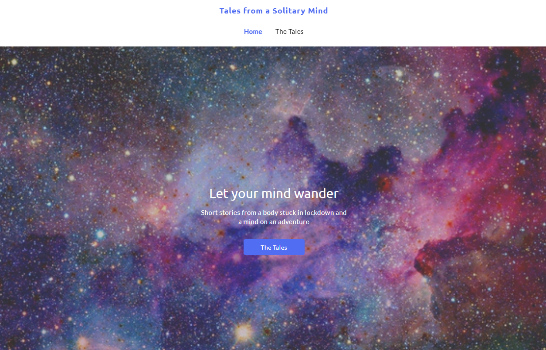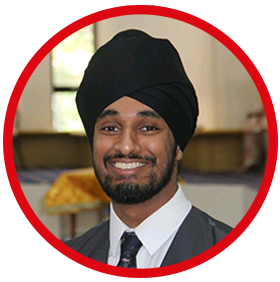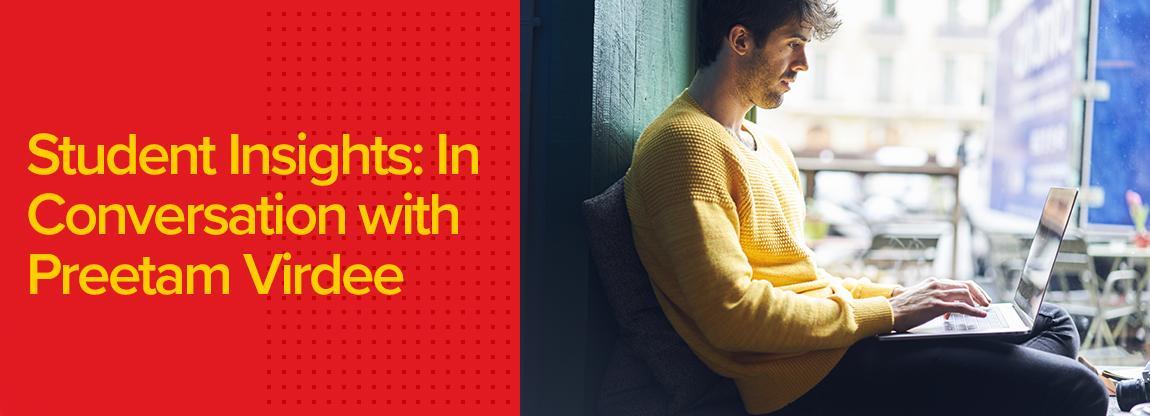Student Insights: In Conversation with Preetam Virdee
Our Marketing Executive, Parveen Bhambra, had the pleasure of virtually sitting down with postgraduate student Preetam Virdee to talk about his experience of completing his Molecular and Cellular Science Research at a distance, during the first UK lockdown in March 2020.
PB: What was your first thought upon hearing you will be finishing your final year at a distance?
PV: Very conflicted. My course is research-based so I was in the lab every day doing lots of hands-on work prior to the March lockdown. When lockdown was announced, I was upset as I wasn’t able to get my own data and analysis, which meant I couldn’t write a research paper.
PB: So how did you manage during lockdown?
PV: We were given a few options to choose from regarding next steps for our projects. I opted to alter my project so I could study from home which meant analysing existing data that was gathered in the same way I gathered mine. I also continued to work towards my original deadline as I didn’t want to drag the project out any longer and I worked with supervisors throughout so I could hand in on time.
PB: How were your days set up? Did you have online classes/sessions?
PV: I started with two meetings a week with my supervisor which were cut down to once a week over time. These acted as progress check-ins. It was hard to engage at the beginning, there was some juggling involved as supervisors were working in their role and at the same time dealing with their own papers and research. Looking back, I now have more perspective as everyone was busy.
PB: Did you have access to any lab-based software at home? What about other key materials?
PV: Yes, my tutors sent links to lab-based software so I could analyse existing data from home and they led workshops to help us learn how to use them. We did this via Microsoft Teams. We relied heavily on Teams throughout lockdown, as well as email communication.
"They sent lecture recordings from different courses that were relevant to my research via email and we used OneDrive for access to materials. I would also watch back Zoom/Teams presentations, I would’ve preferred listening in live and engaging there, but this way I could go back to it and watch again and again."
PB: How did you communicate with your instructors and peers? How did you find it?
PV: I communicated with my supervisors via Teams and emails. Either side of my weekly meetings, I could contact them through these channels as and when I needed to. I would set my email to high importance when I needed to catch them quickly, this worked well. When I had any burning questions, I wrote them down for the meetings to go through face-to-face but if I couldn’t wait, I emailed. There was a point where Teams became clogged with messages but it was fairly quick most of the time and the weekly touchpoint helped to clear things up.
PV: I spoke with my peers easily via a WhatsApp group. We were also given permission to contact tutors and supervisors over the phone if it was urgent.
PB: Did you adjust easily and quickly to your new set up, or did you experience some struggles with it?
PV: I had a big enough space to work in with a large desk and I was able to hide away from the rest of my family in the house. I worked in my bedroom so distractions-wise, it was not the best place to be. It’s easy to get distracted by your bed when you’re tired, or by personal things like my guitar. When I felt like the day was done, I would get a change of scenery from my room.
#DistanceLearningTopTip:
Don’t set your workplace up near the kitchen. Of course, keep yourself fed and hydrated but food can be distracting.
PB: How about your productivity levels?
PV: I had days where I hardly did anything, and I was distracted by looking at my phone or listening to music. I found myself procrastinating a lot and I needed motivation. Other days I turned my phone off, made sure everything on my screen was work-related, and sometimes I typed away for a solid space of time. Detachment was based on how my day would pan out. A lack of a routine worked for me, it’s an unorthodox method but it worked.
#DistanceLearningTopTip:
Motivation is important. When you have that, you’ll have the drive to do your work.
PB: Maintaining your mental health during this time and beyond is vital. While some were only allowed to venture out of the house for one form of exercise, and others not at all, how did you keep calm during this time? Did you practice any mindfulness methods that helped you maintain your mental health?
PV: I’ve experienced the ‘ups and downs’ of mental health personally so I’m glad that conversations are taking place on this.
PV: Being content with who you are and where you are is a big issue now. University can be very taxing emotionally with all the studying (and the pandemic hasn’t made it any easier) so your brain deserves a break. Being stuck inside all day, alone, is tough. I would talk out loud when typing to have that sense of noise and it also helped to flesh out my ideas.
PV: Downtime is key too, finding something to give you a release, something to relieve stress, like painting or watching YouTube videos. I read books that transported me to a fantasy world. I also played video games and played my guitar – it was a sense of escapism.
Speaking of stories and escapism, Preetam recently started his own blog during the most recent third lockdown in the UK.
Tales from a Solitary Mind features a series of short stories covering various topics and themes that 'let your mind wander.'
Have a read here!


PV: Every student should have some form of stress relief, something to help them relax. The idea of ‘taking a mental health day’ has become well known these days. Take a break and gain some fresh perspective, take some time away from your learning and study space. You must strike a balance between your study time and your personal time.
PB: Many universities have moved their entire academic term, and even year, online. Others have opted for a split of face-to-face and online interaction. Do you have any advice for those students entering university for the first time in this environment?
PV: My biggest advice is don’t waste your free time. Lectures will start to build up so take advantage of the spare time you do have. Ensure you attend lectures, in person or Zoom - get up for your 9am zoom lecture, it will benefit you in the long run! Also, get involved. Participation really does go a long way!
PV: Stay social! Join societies, attend zoom meetings where you socialise with peers and other students. It helps with mental health. If you live in shared housing, organise a rota where all of you are working at the same time. This helps to minimise distractions. You can also pack your bed with as much stuff as possible, books, papers, notes etc, it will stop you from getting comfortable on your bed and eventually stop working. It’s a great organisational tactic as well as keeping you from sleeping and procrastinating.
For more tips and information on maintaining healthy habits, mindfulness and an overall positive university experience, check out our article, 'How to be Zen at University: A Student's Guide to Mindfulness.’
PB: If you had the opportunity to re-do your virtual learning experience, what would you do differently?
PV: I would take advantage of being able to instantly chat with my supervisor so I can get answers to my questions quicker. I would also take advantage of the meetings more, sometimes I didn’t ask enough questions and then had to wait until the following week. Meetings are key during this time! Finally, I would put away any distracting items - out of sight, out of mind.
PB: To end on a note of positivity, now that you have completed your studies/graduated, what does the future hold for you?
PV: For now, I’m taking a break before I start job hunting. I’m keeping tabs on different jobs for real world experience so I can build my skills and CV, but the career path I want to take is one in science. I’d like to explore becoming a junior researcher in clinical science which will eventually lead to counselling. Like I said before, I’m interested in mental health and translating that to a job in mental health professions.
Thank you for reading!
If you would like to lend your voice and experience to the next Student Insights article, please complete the below form. We, and your peers, would love to hear from you!
If this article inspired you even further, you can also submit an application to join our Student Ambassador Programme, becoming an advocate for digital learning and a voice for the student community, and not forgetting the chance to boost your professional profile for the future.


About the Interviewer: Parveen Bhambra
Parveen is a Marketing Executive in the McGraw Hill EMEA Team, based in the UK.


About the Interviewee: Preetam Virdee
Preetam is a recent graduate from Reading University where he completed his Molecular and Cellular Science Research project.
If you would like to share your own experiences, please fill out the form below:

